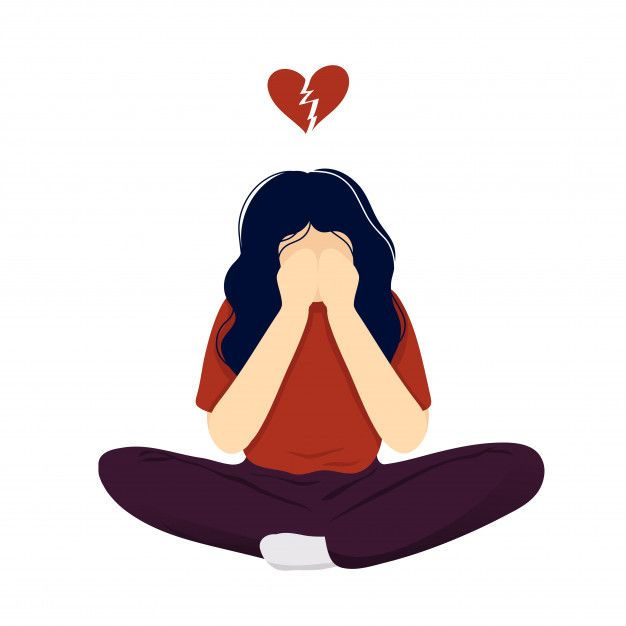Saranyaa Ramesh
Intern, Sept- Oct 2023
“What is grief, if not love persevering”? Grief - we’ve all experienced it at some point in our lives, and no grief isn’t limited to the loss of a loved one (which we will get into at a later point in this blog.) Grief is a natural, automatic response to loss of any kind, and just like any other emotion, it is a complex one.
Psychiatrist, Elisabeth Kübler-Ross, proposed the 5 stages of grief. Kübler-Ross developed this model to help people who were diagnosed with terminal illnesses face their death. But later, this was adapted as a way to think about grief in a general, broader sense.

5 stages of grief -
1. Denial: The initial stage where individuals may have difficulty accepting the reality of their situation, and it is in this stage that people often feel numb.
2. Anger: This is the stage where people display emotions of frustration, and anger as they process their grief.
3. Bargaining: In this stage, people may try to make deals or promises to change the outcome or reduce their pain, as a way to deal with their grief.
4. Depression: During this stage, a sense of despair, and deep sorrow can take over our lives for the loss we have faced.
5. Acceptance: The final stage involves coming to terms with the reality of the situation and finding a way to move forward and make peace with our present.
Is there more to grief than the 5 stages?
The 5 stages of grief model have massively helped in our understanding of grief. However, it is important to note that these stages are not always experienced linearly, and not everyone goes through all of them. Its complexity is not captured by the Kübler-Ross model.
Grief is unique to each individual, influenced by cultural, social, and personal factors. It can manifest differently in different individuals, even if their loss is the same. In one person, grief may look invisible, almost like everything is “normal” for them. Whereas for another, there are external emotions on display, to deal with grief. Moreover, grief isn't specific to the loss of a loved one; it can also be triggered by the loss of a job, a relationship, health, or a way of life
(more on this soon) The duration and intensity of grief can vary widely, and people may revisit certain emotions repeatedly. How we process and look at grief changes throughout our lives. It is important here to understand that everyone grieves differently and there is no right or wrong way to deal with the feelings of loss. Grief transcends the death of a loved one; it consists of a wide range of losses. People grieve the end of relationships, whether through breakup or divorce; Job loss or major life transitions can cause grief; and the loss of health due to illness or injury.

Expectations we have of life, especially if they turn out to be different than how we anticipate them to be, can also trigger grief. Grief not related to grief is often looked down upon, but it can be just as emotionally draining and overwhelming.
Types of grief
Grief can take on various forms, and it isn't limited to a single type. Some common types of grief include:
1. Anticipatory Grief: This occurs when individuals experience grief before an actual loss, often when they know a loved one's death is inevitable due to a terminal illness.
2. Complicated Grief: Also known as prolonged or unresolved grief, it involves persistent and intense grief that doesn't minimize over time and can lead to mental health issues.
3. Collective Grief: A type of grief shared by a group or community in response to a significant event, such as natural disasters, mass tragedies, or a global crisis like the COVID-19 pandemic.
4. Ambiguous Grief: This arises when individuals experience grief in situations where the loss is unclear or ill-defined, such as when a person goes missing or in cases of dementia.
5. Disenfranchised Grief: This occurs when a person's grief is not socially recognized or validated, and their experience of grief is minimized.

Comments